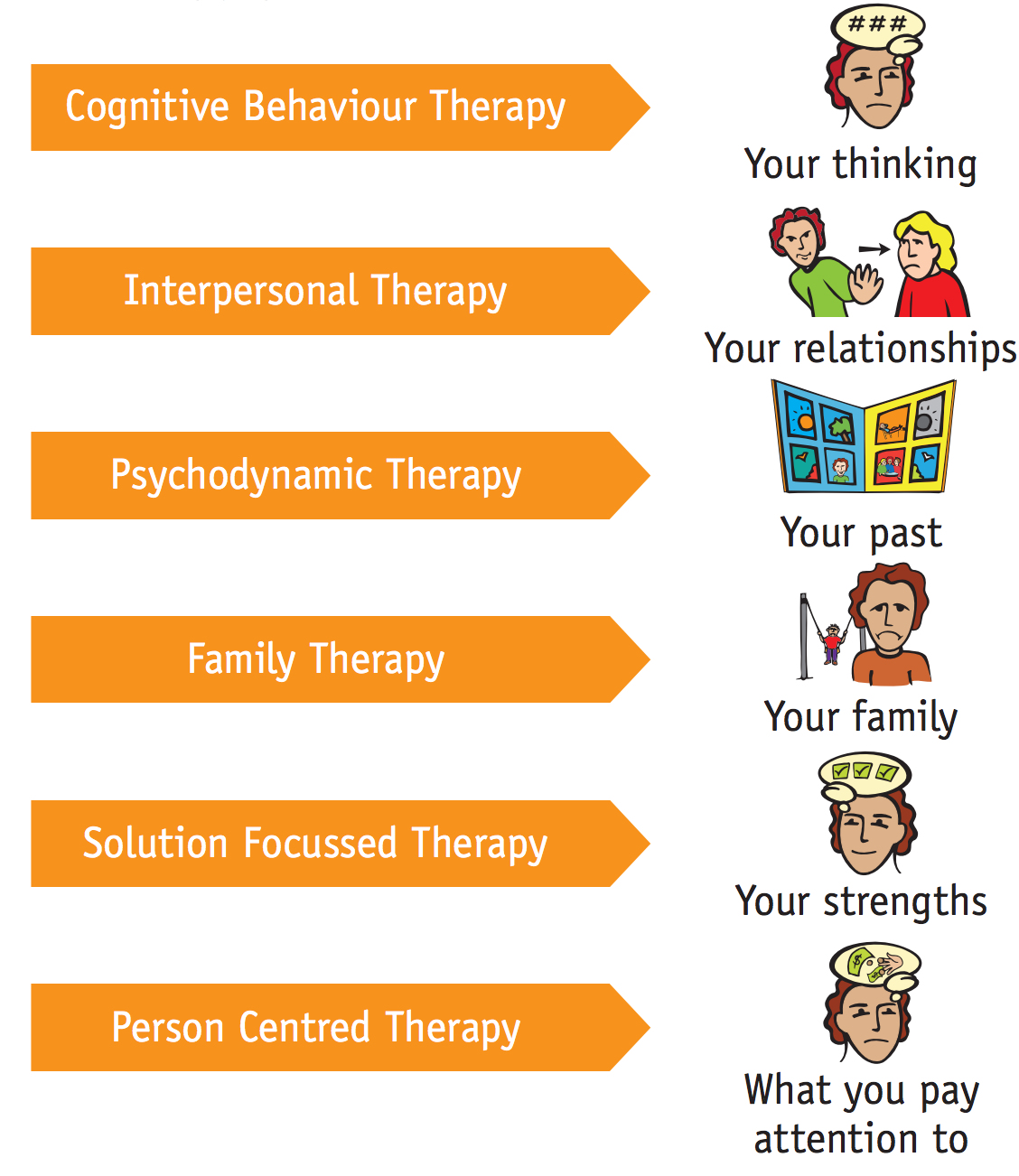A Comprehensive Guide to the Various Types of Coaching and Their Influence
Counseling incorporates a selection of healing strategies, each made to satisfy one-of-a-kind psychological health needs. From the structured techniques of Cognitive-Behavioral Treatment to the compassionate nature of Person-Centered Therapy, these methods provide distinctive paths to personal development. Household treatment and Dialectical Behavior modification supply extra structures for healing, while group counseling fosters area assistance. Comprehending these varied techniques can illuminate their profound impact on specific health. What remains to be explored are the intricacies of each method.

Recognizing Cognitive-Behavioral Therapy (CBT)
Although many therapeutic methods exist, Cognitive-Behavioral Therapy (CBT) stands out due to its organized, goal-oriented nature. This type of therapy is based on the premise that ideas, feelings, and actions are adjoined, and by changing negative thought patterns, people can change their psychological responses and actions. CBT employs different techniques, such as cognitive restructuring, which assists clients determine and test distorted beliefs. Behavior activation urges involvement in pleasurable activities to combat anxiety.
Typically, CBT is a temporary therapy, frequently enduring in between 12 to 20 sessions, making it easily accessible for those looking for quick results. Its effectiveness has been well-documented in dealing with anxiousness conditions, clinical depression, and other mental health concerns. The specialist's duty is to direct customers via exercises and homework projects, promoting self-awareness and advertising long-lasting coping techniques. This functional method encourages individuals to take control of their mental well-being, eventually causing boosted life fulfillment.
Discovering Person-Centered Therapy
Person-Centered Treatment, created by Carl Rogers, uses a different method to Cognitive-Behavioral Therapy by stressing the customer's subjective experience. This therapeutic model focuses on the individual's viewpoint, fostering a setting of compassion, unconditional favorable respect, and authenticity. By enabling clients to discover their feelings and thoughts without judgment, specialists facilitate individual growth and self-discovery.
The core tenet of Person-Centered Treatment is the idea that individuals have the integral capability for self-healing and personal advancement. In this setting, the specialist serves as an encouraging overview instead than an instruction authority, motivating customers to take fee of their own journey. This technique is especially efficient for those coming to grips with concerns such as reduced self-worth, anxiousness, or anxiety, as it empowers them to confront and comprehend their feelings. Inevitably, Person-Centered Treatment grows a solid therapeutic partnership, promoting trust and visibility important for purposeful adjustment.
The Role of Family Members Treatment in Healing
Family members treatment functions as an important element in the healing process for people and their connections. This therapeutic approach concentrates on improving interaction, dealing with conflicts, and promoting much deeper connections amongst member of the family. By resolving dysfunctional dynamics, website family therapy motivates each member to express their thoughts and feelings in a safe environment, promoting understanding and compassion.

The effect of family therapy expands beyond the sessions, as boosted connections can result in boosted emotional health for all entailed. Overall, family therapy plays an important function in recovery by fostering unity, durability, and common assistance amongst relative, ultimately directing them toward a much healthier, much more fulfilling life with each other.
Unpacking Dialectical Behavior Modification (DBT)
Structure on the structure of restorative techniques that improve emotional health, Dialectical Behavior modification (DBT) uses an organized framework for people having a hard time with intense emotions and behavioral obstacles. Created by Marsha Linehan, DBT integrates cognitive-behavioral strategies with mindfulness techniques, intending to help customers take care of overwhelming sensations and enhance social efficiency.
The treatment is particularly helpful for those identified with Borderline Individuality Problem but is also suitable to a range of various other mental wellness problems. low cost therapy. DBT consists of private treatment sessions and skills training groups, concentrating on four vital ability collections: mindfulness, distress resistance, feeling guideline, and social effectiveness
The Advantages of Team Coaching Sessions
While individual therapy offers valuable insights, team counseling sessions supply unique benefits that can substantially boost the healing experience. One crucial advantage is the feeling of community that arises among participants. Individuals typically find comfort in sharing their experiences with others encountering similar challenges, cultivating an encouraging setting that minimizes feelings of isolation.
Furthermore, group sessions urge diverse viewpoints, allowing individuals to pick up from each other's coping strategies and understandings. This cumulative wisdom can cause improved analytical capabilities and a broader understanding of individual problems.
Furthermore, group therapy typically promotes accountability, as members motivate one an additional to pursue their objectives and abide by their dedications. The cost-effectiveness of group treatment makes it an easily accessible option for numerous individuals seeking support. In general, the collective nature of group counseling sessions can substantially enhance the therapeutic journey.
Frequently Asked Inquiries
What Certifications Do Therapists Required to Exercise Counseling?
Specialists generally need an appropriate degree in psychology or counseling, in addition to monitored professional experience. Furthermore, they should acquire ideal licensure or qualification to exercise lawfully, ensuring adherence to specialist criteria and ethical guidelines.
Exactly how Do I Pick the Right Kind Of Therapy for Me?
Choosing the appropriate sort of treatment includes assessing personal requirements, checking out various methods, thinking about therapist specialties, and looking for recommendations. Understanding individual goals and choices can substantially enhance the efficiency and complete satisfaction of the therapeutic experience.

Are Online Counseling Procedure as Effective as In-Person Ones?
The effectiveness of online counseling sessions compared to in-person ones commonly depends upon individual choices and scenarios. Research suggests that both approaches can yield positive results, though some may locate higher convenience in face-to-face communications.
How Lengthy Does Therapy Normally Last?

What Should I Expect Throughout My Very First Therapy Session?
Throughout the very first therapy session, customers can expect an intro, conversation of their issues, facility of objectives, and an overview of the therapy procedure - adhd counselling. This first meeting aims to build relationship and assurance comfort